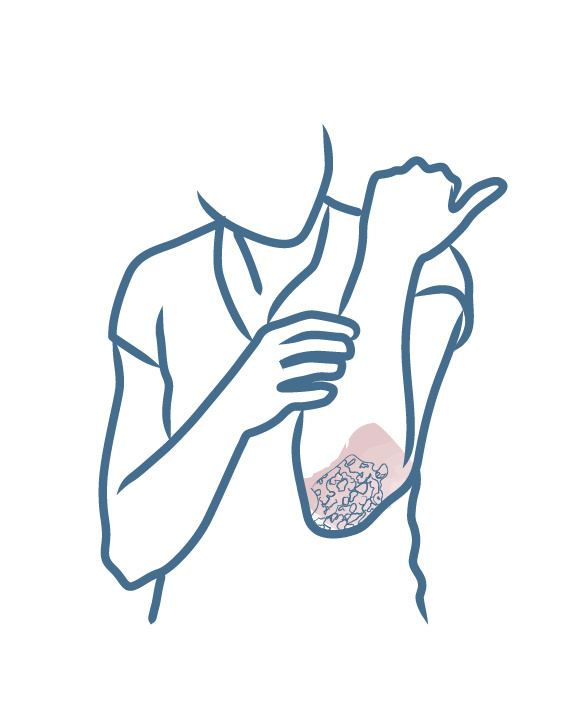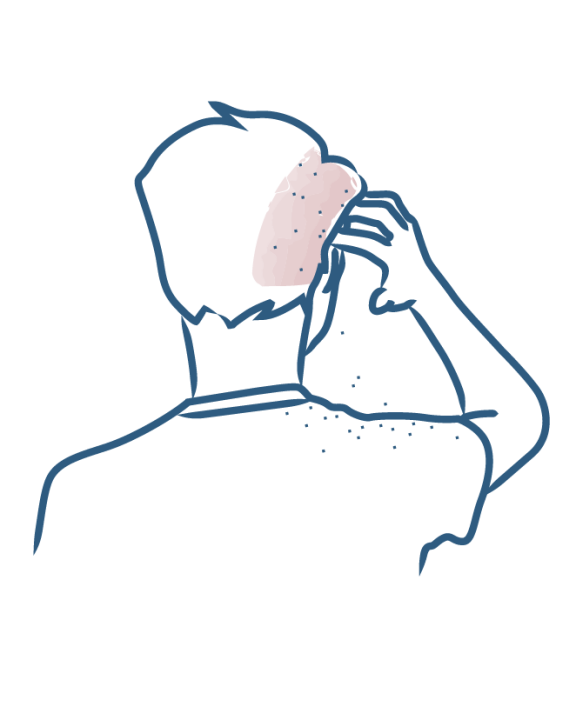What is psoriasis?

Psoriasis during pregnancy
Psoriasis is a chronic inflammatory skin disease that affects many women of childbearing age. The disease is often so prevalent in these women’s daily lives that it raises many concerns when they decide to have a baby.
The answers to your questions about psoriasis during pregnancy
It is important to answer the questions of psoriatic, pregnant women in a clear and reassuring manner:
Will psoriasis get worse during my pregnancy?
It is impossible to predict how psoriasis during pregnancy, will progress, but experience shows that in the majority of cases, the opposite is true: psoriasis tends to improve or the condition stabilizes, mainly due to hormonal and immunological changes in the body. On the other hand, psoriasis flare-ups after childbirth are extremely common.
Will I transmit psoriasis to my child?
Again, this is impossible to predict. Psoriasis is now known to have a genetic component that, when combined with environmental factors, triggers the disease. In any case, the intensity of the mother's psoriasis during pregnancy has no bearing on the level of this risk.
Can psoriasis stop me from conceiving?
Psoriasis does not prevent you from having children. However, some medicines should not be used to treat psoriasis during pregnancy. If you decide to have a child, it is essential that you make an appointment with your dermatologist to review current treatments. Some treatments such as methotrexate are contraindicated during pregnancy. Other treatments such as topical corticosteroids or some types of phototherapy can be used throughout pregnancy. A woman with psoriasis who wants to have a child may therefore have to change her current treatment.
Can I breastfeed safely if I have psoriasis?
Unlike pregnancy, breastfeeding ultimately has little impact on psoriasis, and neither improves nor aggravates the condition. Psoriasis itself has no effect on breastfeeding but some of the treatments may not be suitable for use because they can be transmitted into breast milk. Once again, it is recommended that you discuss this with your dermatologist.
More information
- Discover Joint psoriasis or Psoriatic arthritis
What is psoriasis?
Joint psoriasis or Psoriatic arthritis
- Discover Erythrodermic psoriasis
What is psoriasis?
Erythrodermic psoriasis
- Discover Plaque psoriasis
What is psoriasis?
Plaque psoriasis
- Discover Pustular psoriasis
What is psoriasis?
Pustular psoriasis
- Discover Is psoriasis contagious?
What is psoriasis?
Is psoriasis contagious?
- Discover Psoriasis in children
What is psoriasis?
Psoriasis in children
- Discover Nummular psoriasis
What is psoriasis?
Nummular psoriasis
- Discover Inverse psoriasis or Skin-fold psoriasis
What is psoriasis?
Inverse psoriasis or Skin-fold psoriasis
Our care routines
Psoriasis-prone skin
Dermatological expertise
To better understand your skin and hair, discover our exclusive content and innovative care products designed to improve your quality of life..


